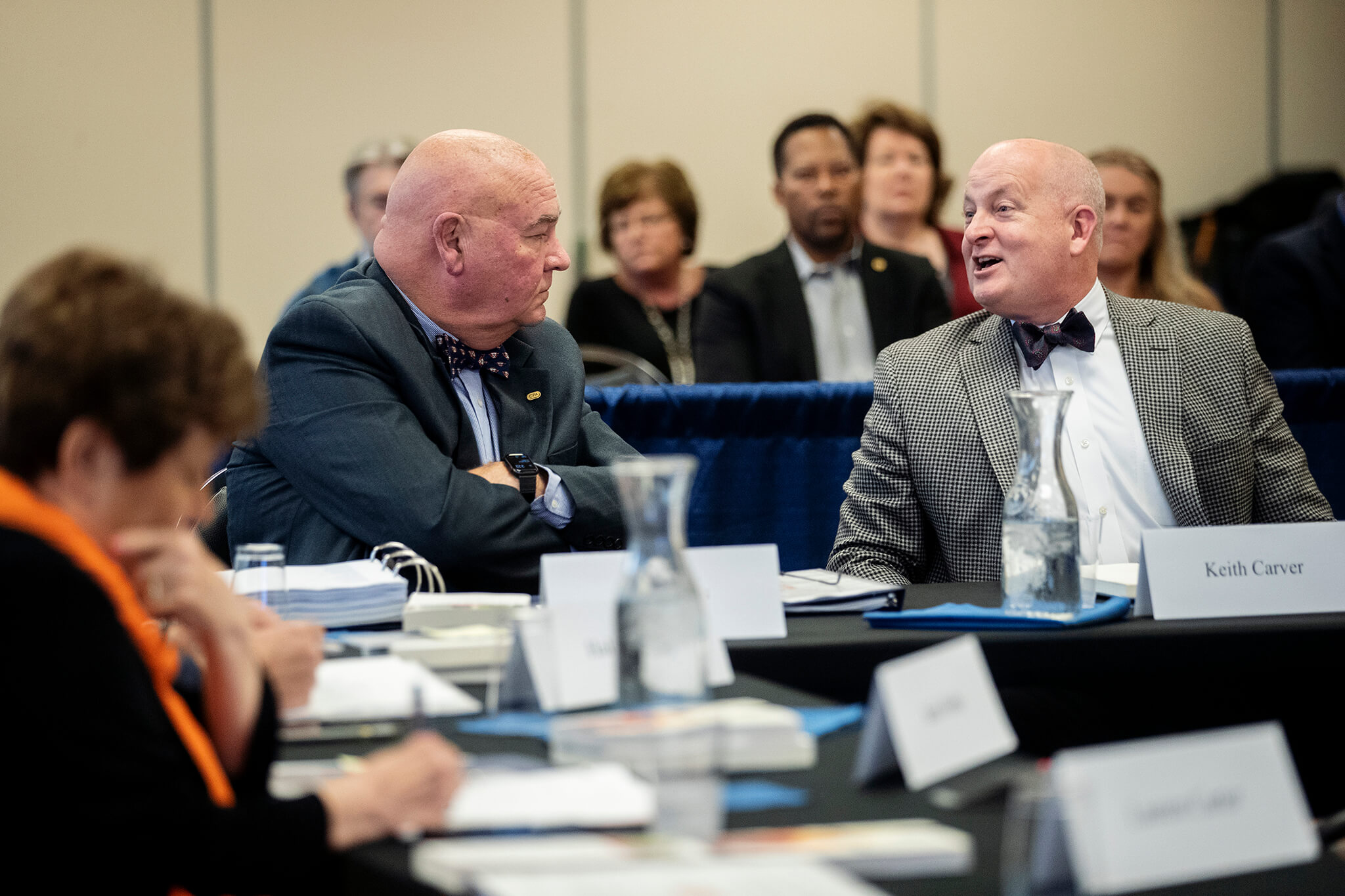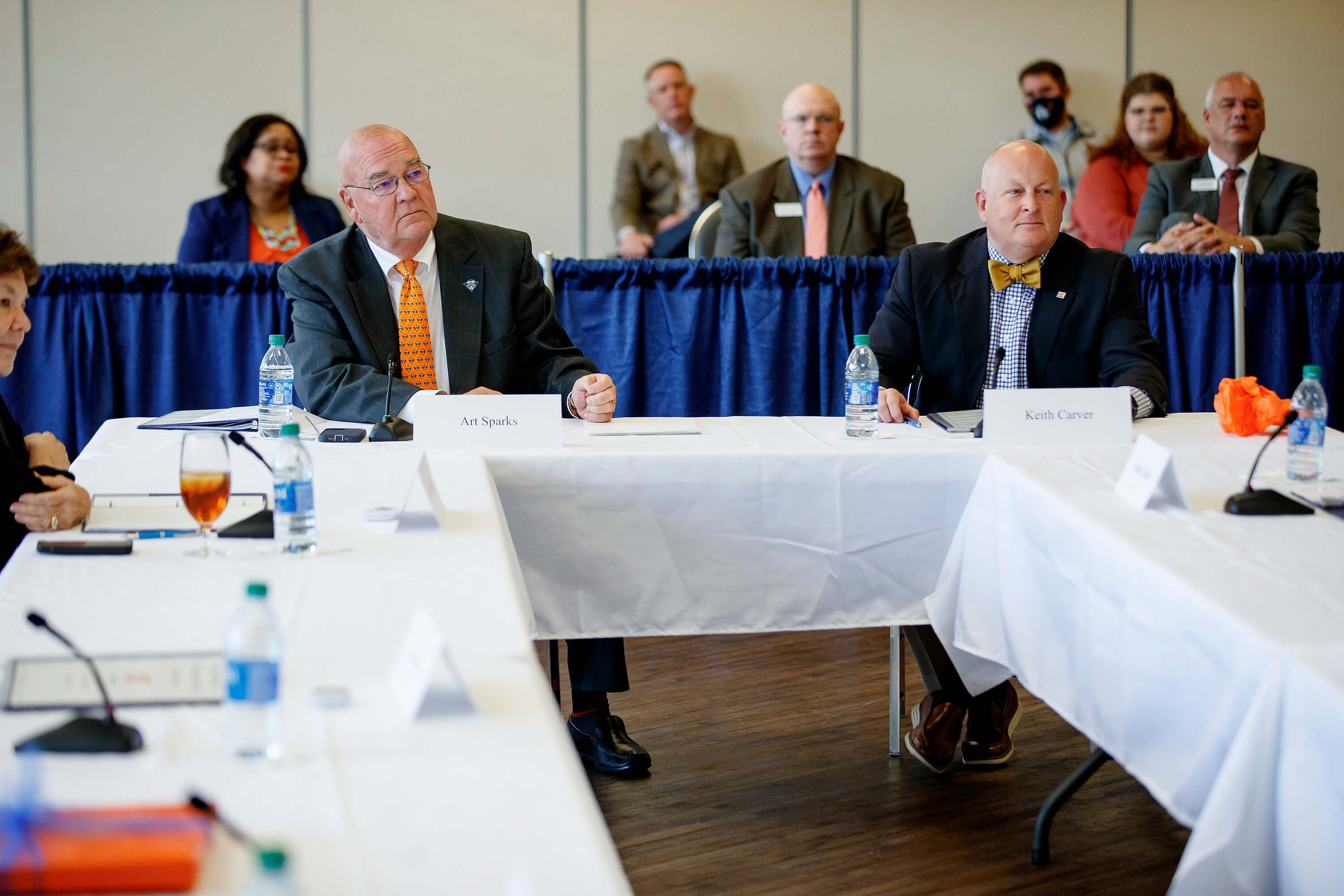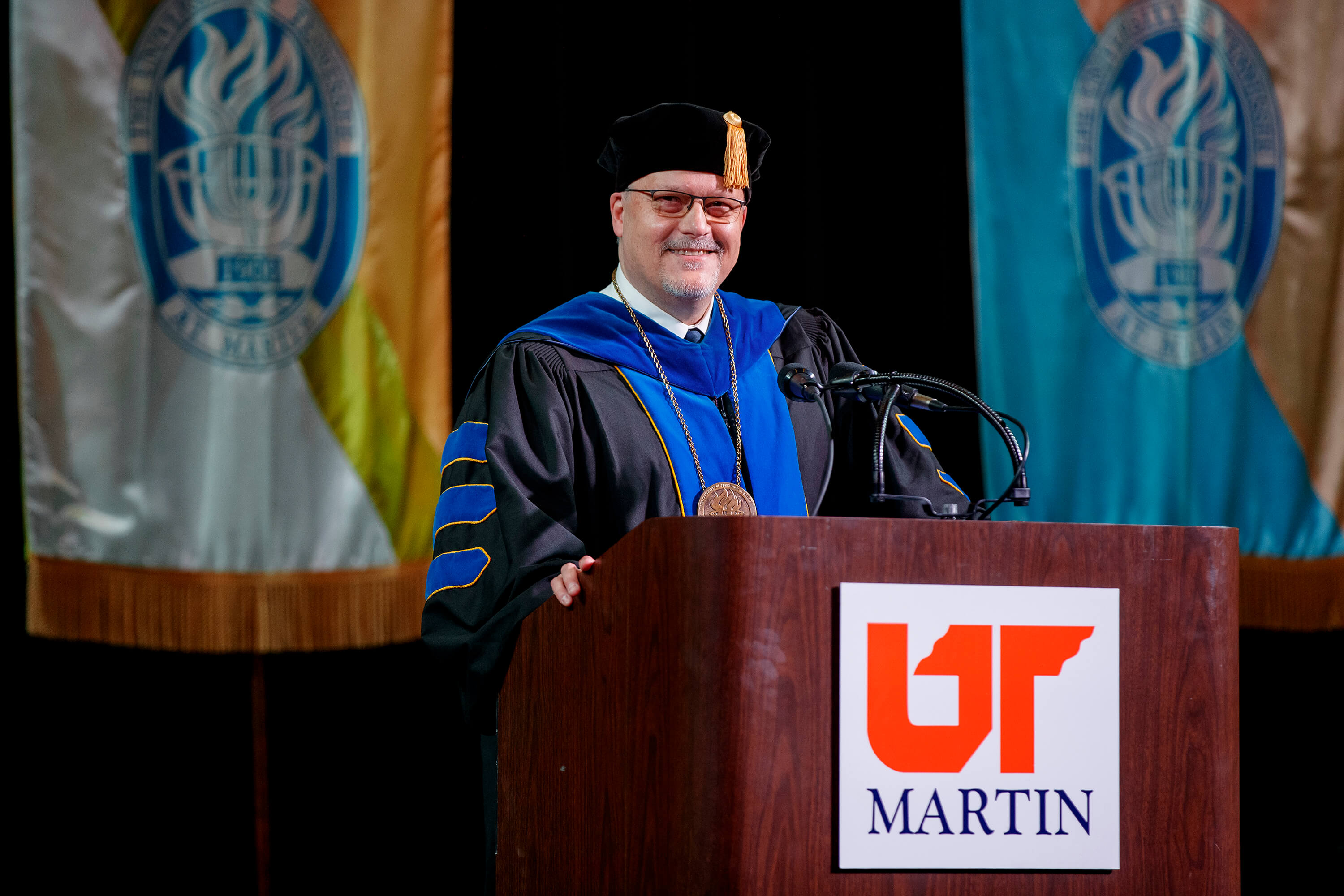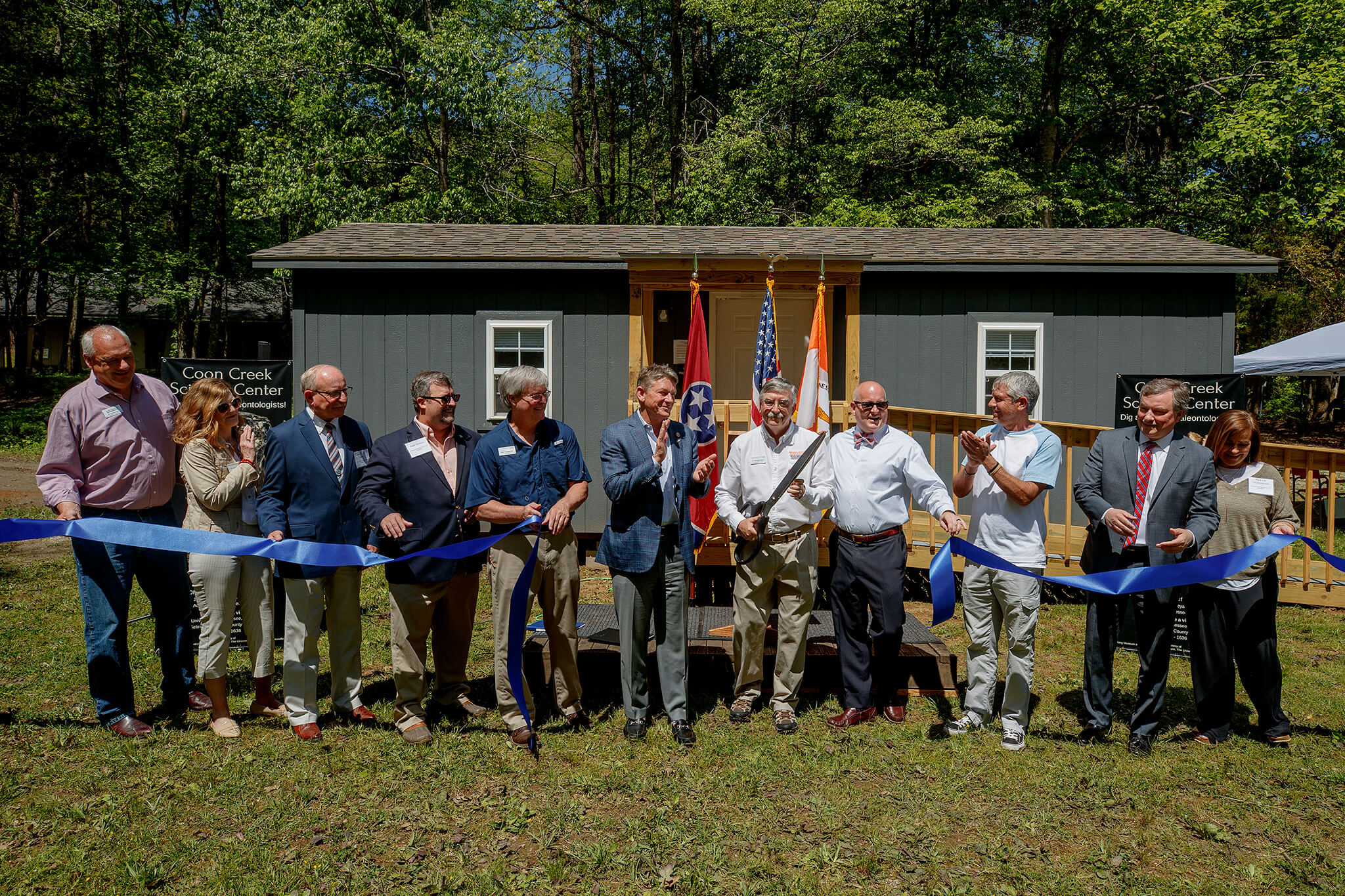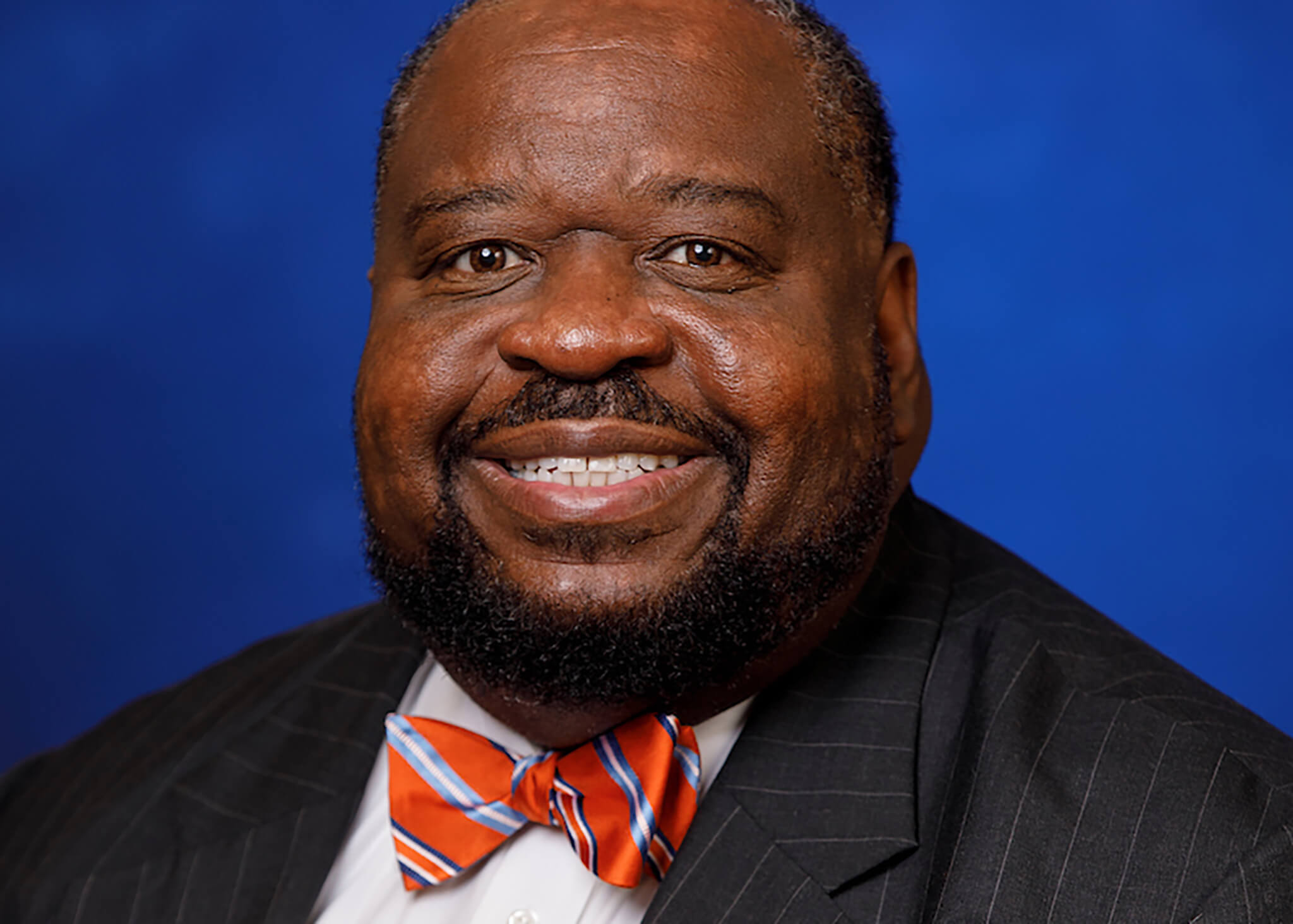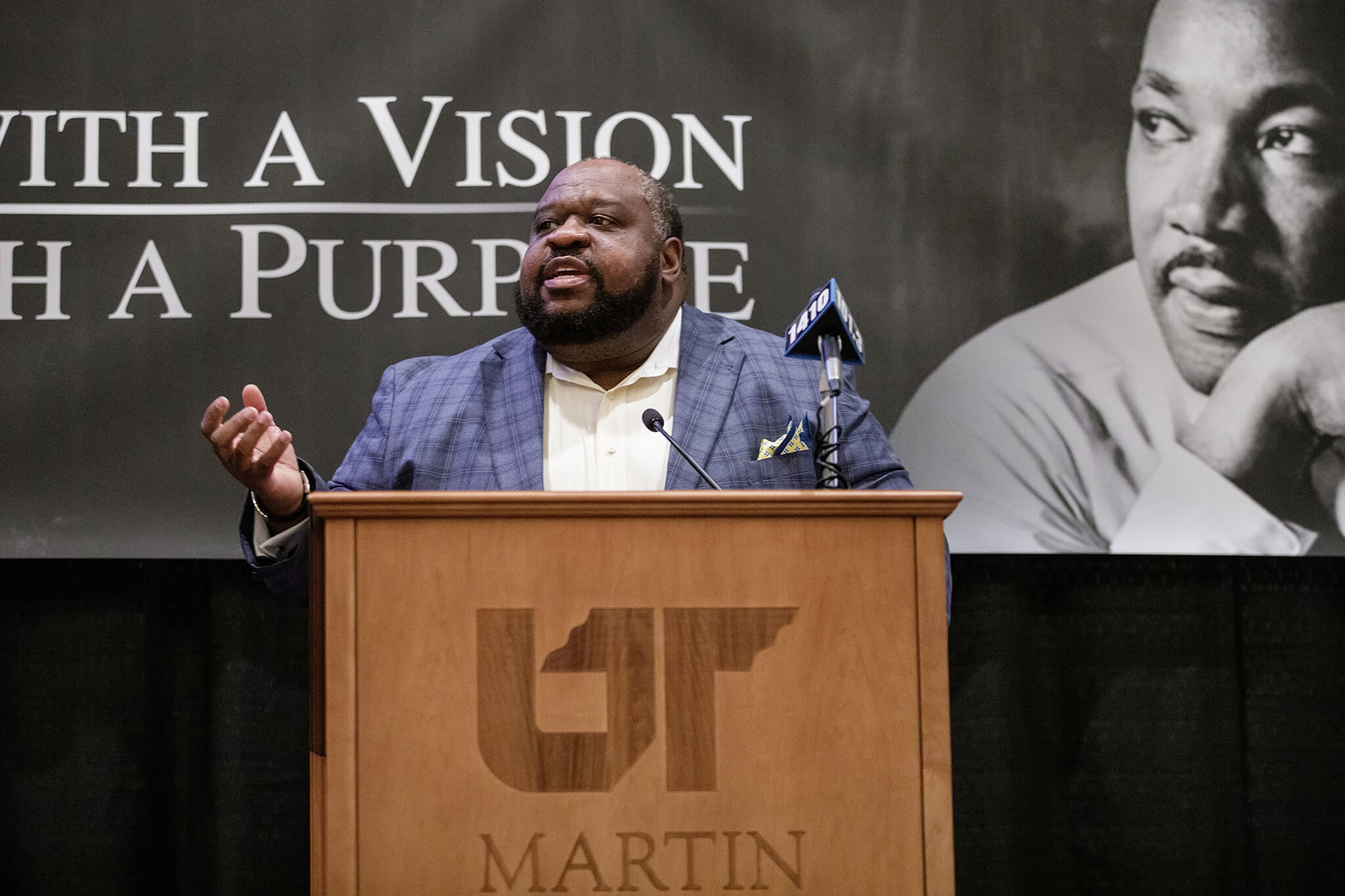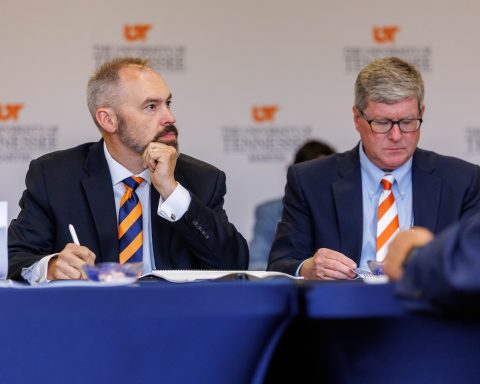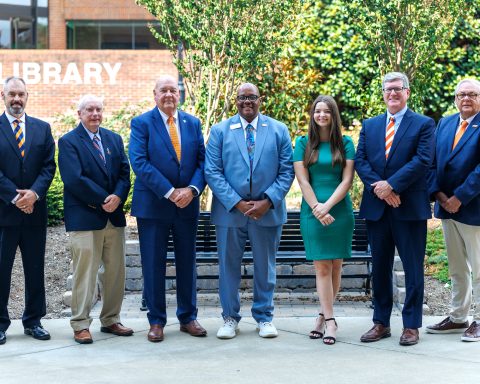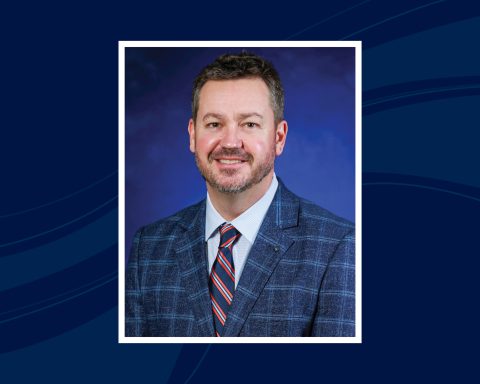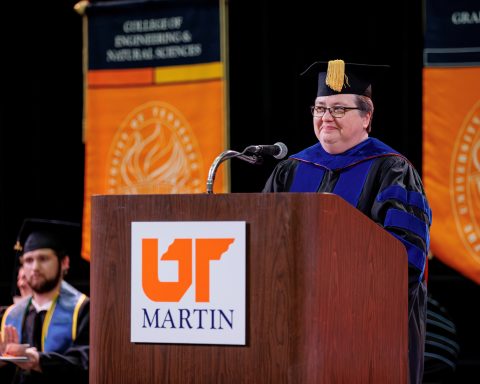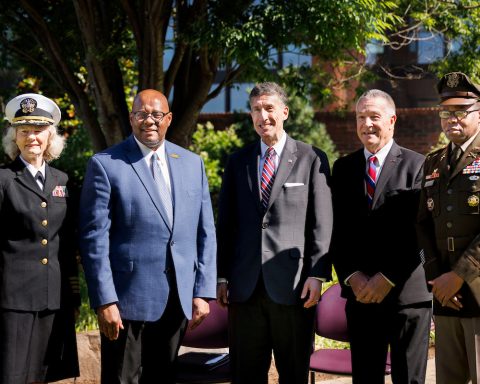The University of Tennessee at Martin Advisory Board met Jan. 10 to hear presentations from university officials on student affairs, student crisis response, UT Promise applications and student transfer procedures.
Dr. Andy Lewter, vice chancellor for student affairs, updated the board on activities in the various student affairs units, including housing, student life and multicultural affairs, campus recreation, disability and testing services, career planning and development, and student conduct. The highlight of Lewter’s presentation was a discussion of the UT Martin Care Team and its crisis response procedures. A staff panel consisting of John Abel, assistant vice chancellor for student affairs; Shannon Perry, student conduct officer; Ryan Martin, director of housing; and Carly Jo Archie, crisis case manager, explained the process.
Launched in fall 2017, care.utm.edu provides an online reporting outlet for all types of concerns regarding student health, safety and wellbeing. A “Hawk Alert” can be submitted 24/7 by any individual – student, staff, faculty, parent, employer or community member – and immediately alerts the six-person crisis response team, which responds within minutes.
“Depending on what has happened, if it’s a student who is in severe distress and needs a welfare check, we’ll get public safety out there,” said Perry. “If a student needs to go to the hospital and have a crisis evaluation done, we will meet them at the hospital.”
In addition to the dedicated response team, members of the UT Martin residence life staff are always on call to assist when an alert arrives for an on-campus student.
“We are blessed to have an amazing group of student leaders, student staff and professional staff (in the residence halls). I’ve got somebody on call 24/7 – a professional staff and a student member. We have flexibility to send somebody out to do welfare checks immediately, so when I say we’re responding within minutes of the alert coming in, we really are,” said Martin. “All of our (residence life) staff is mental health first aid certified. … We are able to stay with (the student) from the time they are in crisis until after they get back to follow up with them.”
Martin says they receive hawk alerts throughout the semester for situations ranging from a student missing class, academic concerns, and mild illnesses all the way to serious mental health crisis and self-harm. However, since the creation of the crisis response team, students are being helped far faster than in previous years.
“We are reaching our students before they reach the pinnacle of crisis,” said Perry, who noted a 50 percent reduction in the number of students admitted to the hospital for suicide attempts in fall 2019 as compared to previous years. While online referrals have jumped from 45 in fall 2017, when the website was launched, to 224 in fall 2019, Perry says this increase is due to greater education about the signs of mental health crisis and the availability of the alert system.
“It’s not just for mental health concerns,” she said. “We’ve had some students who were involved in a very bad (car) accident, and one was airlifted to Memphis. They were international, and the international director was in Japan. So, there was a whole coordination that had to be done, and the crisis response team was able to do that in a meaningful way.”
Perry said the team often contacts emergency services when students are unable or unwilling to do so for themselves, and team members have even contacted law enforcement in other states when online students were in crisis. The 2019 addition of a part-time student intern, Carly Jo Archie, to the team has increased the team’s follow-up abilities as well. Archie is a graduate student at Union University earning her degree in social work, and she serves as case manager to make sure students have access to and are utilizing services such as counseling, tutoring, the food pantry or meal-swipe program, career services or other outlets after their time of initial crisis has passed.
In addition to the care team presentation, Lewter also noted increased occupancy in the campus residence halls (up six percent in fall 2019); increased fitness programming in the Student Recreation Center (up 22 percent in 2018-19); more than 13,000 hours of community service and $85,000 raised by UT Martin Greek life and student organizations; 733 meals provided by the Skyhawks Share meal donation program in fall 2019; and approximately 400 students served by the Office of Career Planning and Development. Lewter says these numbers show a positive impact on UT Martin students and are affecting student retention and success.
In other presentations, Destin Tucker, director of undergraduate admissions, gave an update on the UT Promise scholarship program set to launch in fall 2020. According to Tucker, the application deadlines for the program have already passed, but students hoping to take advantage of the last-dollar scholarship must complete their FAFSA applications online by Feb. 1.
Tucker said 51 new freshmen applied for the program for fall 2020, but all of those students will already have their tuition and mandatory fees covered by other sources and therefore will not need funds from the UT Promise program. Of the current students who have applied, 198 meet the eligibility criteria and will receive an average of $2,734 each, provided they meet the Feb. 1 FAFSA deadline. Information regarding this deadline has been sent to all currently enrolled students and posted in various formats through student portals.
The UT Promise program is a last-dollar scholarship, meaning it will cover remaining tuition and mandatory fees after all other state, institution and private scholarship and grant funds have been applied. Housing, books, specialized course fees and other expenses are not included under this program.
Dr. Philip Acree Cavalier, university provost, updated the advisory board on an effort underway to improve and simplify the credit transfer process for students who are moving between the four main University of Tennessee campuses. A team has been assembled with representatives from all four campuses to address this issue for future semesters.
UT Martin Chancellor Keith Carver closed the board meeting with comments on the search for a permanent vice chancellor for university advancement. Dr. Shadow Robinson, chair of the search committee, hopes to have finalists on campus in late February for interviews and to announce the position shortly thereafter. Carver also noted that the visitors’ stands at Hardy Graham Stadium have been cleared to begin renovations following damage from seismic activity on campus in recent semesters, and the demolition of the Grove Apartment complex on the corner of University Street and Moody Avenue has been requested for inclusion in the state budget appropriations. This area is anticipated to become a green space of some type.
The full webcast of the board meeting is available at utm.edu/abmeeting. The agenda and meeting materials, including all PowerPoint slides and handouts, are available at utm.edu/advisoryboard. For more information, contact the UT Martin Office of University Relations at 731-881-7615.
###
If you are concerned about a student’s welfare or mental health, or have reason to believe a student may harm him or herself or others, please submit a Hawk Alert at care.utm.edu. If there is an emergency, call 911.

